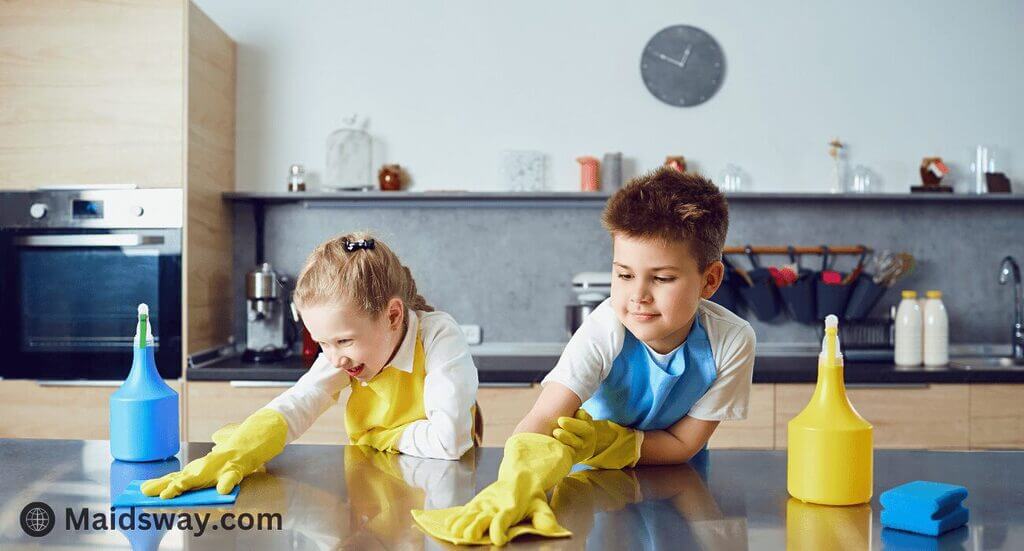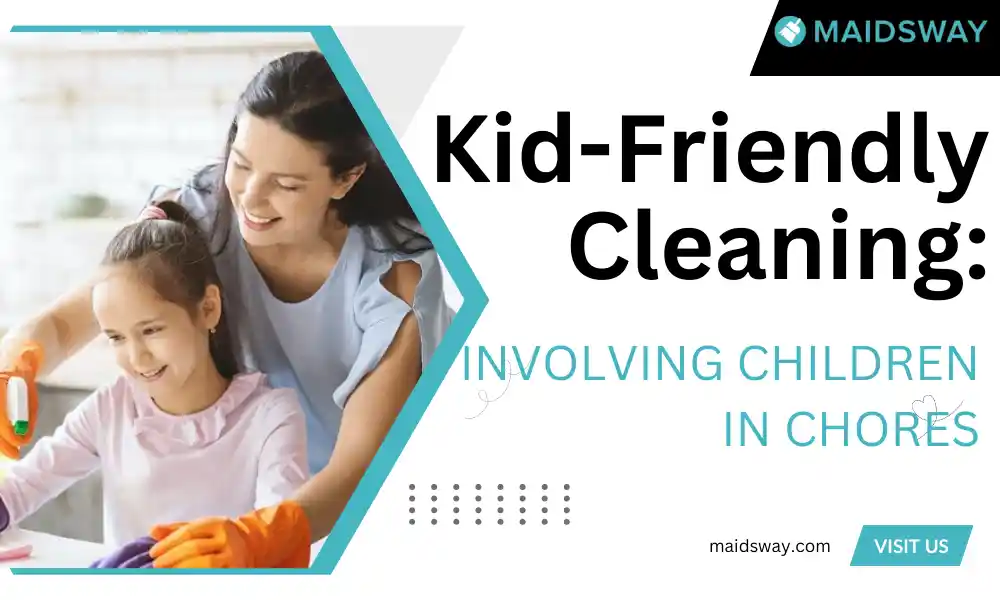Kid-friendly cleaning isn’t just about maintaining a tidy home; it’s an opportunity to teach children valuable life skills while making chores enjoyable. Involving children in cleaning tasks helps them understand responsibility, develop essential organizational skills, and foster a sense of independence. By tailoring tasks to their age and abilities, you can transform cleaning into a fun, educational activity that strengthens family bonds and prepares children for future responsibilities. Discover how incorporating Kid-Friendly Cleaning practices can create a positive, engaging experience for the whole family.
Why Children Should Participate in Cleaning
- Responsibility: Involving children in cleaning duties teaches them to take responsibility for their belongings and the shared living space.
- Life Skills: Cleaning activities impart crucial life skills such as organization and time management, setting a strong foundation for their future.
- Teamwork: Chores can be transformed into bonding experiences for the entire family, teaching children the value of collaboration and teamwork.
- Independence: Through cleaning tasks, children develop a sense of independence and accomplishment as they learn to care for their environment.

Kid-Friendly Cleaning Involves
Tailoring Tasks to Age and Ability
- Toddlers (18 months – 3 years):
- Focus on Fun: Cleaning should be approached as a playful activity at this age.
- Toy Organization: Teach them to tidy up by returning toys to designated bins or baskets.
- Simple Sorting: Introduce basic sorting tasks, such as placing dirty laundry in a hamper or picking up specific items.
- Preschoolers (3 – 5 years):
- Bed Making: Begin with simple tasks like pulling up bed covers to instill a sense of responsibility.
- Mealtime Assistance: Engage them in setting the table, wiping spills, and assisting with light meal preparation.
- Outdoor Exploration: Turn outdoor chores into a fun activity by transforming them into treasure hunts or playful adventures.
- Elementary Age (6 – 11 years):
- Establish Routine: Implement consistent chore charts to help them develop a sense of structure and responsibility.
- Room Maintenance: Encourage them to maintain their personal spaces by making beds, tidying up, and organizing belongings.
- Pet Care: Introduce basic pet care tasks like feeding, cleaning food/water bowls, and grooming.
- Teens (12 +):
- Increased Independence: Teens are capable of handling most cleaning tasks with minimal supervision, promoting self-reliance.
- Financial Incentives: Consider linking allowance to chore completion to reinforce responsibility and financial literacy.
- Advanced Cleaning: Entrust them with deeper cleaning tasks such as vacuuming, bathroom cleaning, and outdoor maintenance.
Making Cleaning Fun with Games and Activities
- Music Motivation: Energize cleaning sessions by playing upbeat music and turning them into dance parties.
- Speed Challenges: Set timers for “beat the clock” races to encourage quick and efficient cleaning. For example, see who can pick up the most stuffed animals in two minutes!
- Color Coordination: Assign colors to specific tasks and challenge children to tidy up items of that color.
- Creative Laundry: Transform mundane tasks like sorting laundry into entertaining games, such as laundry basketball or treasure hunts.

Setting the Stage for Success
- Appropriate Tools: Equip children with child-sized cleaning tools and products designed to appeal to their senses and interests.
- Safety Emphasis: Prioritize safety by teaching proper handling of cleaning agents, opting for non-toxic alternatives for younger children.
- Visual Guidance: Utilize picture chore charts to facilitate understanding, especially for pre-literate children.
- Gradual Progression: Avoid overwhelming children by starting with manageable tasks and gradually increasing complexity as they grow and develop.
Conclusion
Engaging children in household chores is not just about maintaining cleanliness; it’s about nurturing essential life skills and fostering meaningful connections within the family. By tailoring tasks to their age and abilities, incorporating fun and creative elements, and providing the necessary support and guidance, parents can instill a sense of responsibility and independence in their children while creating a positive and enjoyable cleaning environment for the entire family to cherish together.

